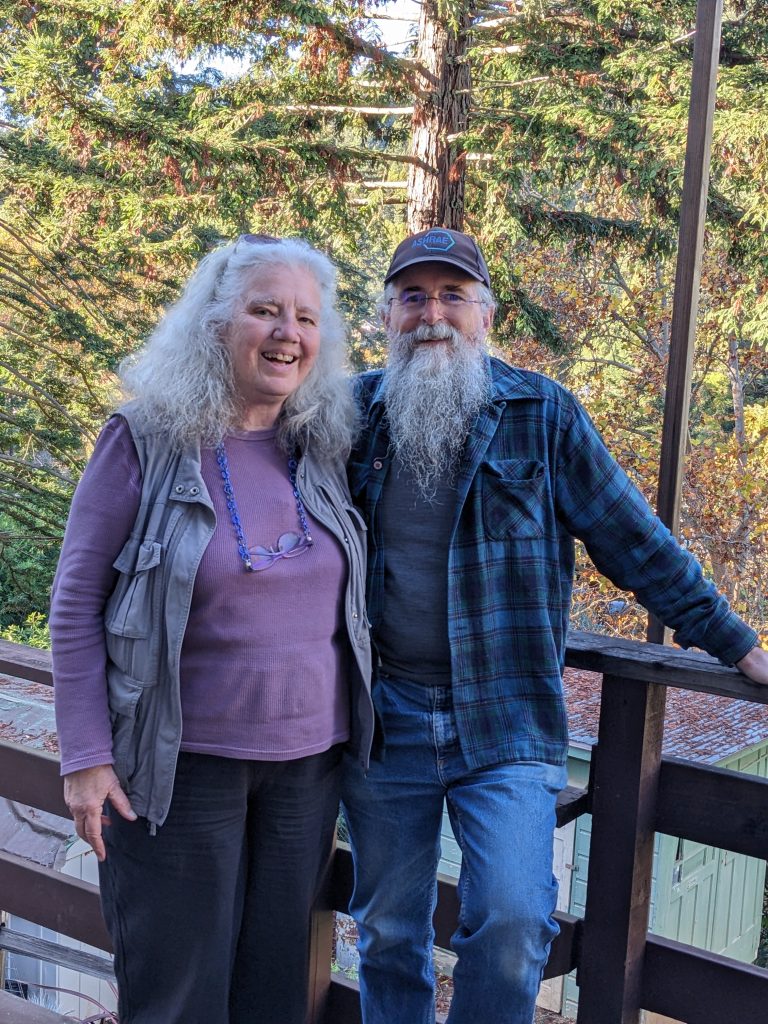I’m running late with my blogpost because exciting things keep happening. The only one I can talk about at this point is the fridge repair that will happen on Friday. And that’s boring to most people… so I won’t. All I can say is that more good things have happened in my new year so far than happened in a month of last year. If I pick and choose the month carefully, then I can say “More than in two months.” I hope this is a harbinger for all of us – we all need a good year after the last one.
I know, as the Treehouse member who gets to blog on New Year’s Day (which is my 2nd January, which never ceases to amuse me) I feel I ought to say something inspirational.
Except… 2023 was a difficult year and many of us (the lucky ones) are merely tired and a little unsafe, many of us (me) are beyond tired, and many of us (too many people I care about) are living through very difficult times with much care and caution. I could say something winsome and hopeful, but it would feel a bit hypocritical.
What’s on my mind a lot right now is how many people don’t identify their own prejudices, but they do act on them. “I don’t hate this” they say. Often it’s Jews, which is, of course the bit that I experience directly. When a “No Jews allowed” sticker is put on a window of a place family members work, I feel it. When a synagogue is evacuated because of a pro-Palestinian protest I might (and, in fact did) have family there, and they had to thread their way through an antisemitic throng to get home on a Friday night. Ironically, that particular Friday night was also the anniversary of Kristallnacht.
All kinds of human beings are suffering from various kinds of hate (disguised and not disguised, recognised and not recognised) and all of us are hurting. If you have the wrong religion, the wrong nationality, the wrong race, the wrong skin colour, the wrong gender, the wrong view of sex, the wrong way of walking down the street, the wrong clothing, the wrong hair colour… almost anything that this person identifies as problematic, then it doesn’t matter how much a person says “I don’t hate” they are bigoted and that bigotry hurts.
I wish this were a luxury moment when general hate was low and I could say “Look, Roger Waters does this thing and is not as bigotry-free as he thinks he is” and step back and hold my peace because everything was explained. But this kind of despite that’s invisible to the person expressing it is infectious.
The people who go on massive demonstrations and say “Look, we’re peaceful. We’re safe” see only the friends around them that they demonstrate with and don’t look at the people who have to hide, or try to hide any differences that could cause them to be focal points of hate or (more uncomfortably for me) have to walk in the march shouting louder than anyone else to prove they’re acceptable.
In the everyday, some people who do the louder shouting are allying openly with bigots, not because they agree with the bigots on whether they themselves should live, but because there are some aspects of the politics they agree with (all humans deserve human rights and Palestinians are suffering a marked lack of them at the moment, for instance) and they either don’t know or don’t care that many people who see the suffering of Palestinians follow some really vile stereotyping and blame this suffering on every Jew they can find. They don’t just blame. They lash out and hurt Jews in many, many countries. As I said, it’s infectious.
I miss the days when I was allowed to teach cultural awareness and understanding. I didn’t teach the politics of it. That was for a different kind of expert. I taught people how to cross the imaginary divide between people and to see the person they were sitting next to as a human being and be able to work with them. I didn’t teach a token “Admit they’re human. Go on. Thank you. We’re done. Get back to your normal life.” I was talking about seeing people as … people. With favourite food and movies, with family, with their own unique lives and their own personal way of facing problems. Talk about issues came later. First individuals had to learn how to see and respect other individuals. This ability is sorely lacking right now.
Teaching cultural awareness is still my favourite way of combating hate. We don’t have to be like our neighbours in culture, religion or history. We do have to see them as equally human, and understand what that means.
In my perfect world, we all all taught how to identify the invisible bigotry most of us carry, and that it’s our responsibility to handle it. Also, that we’re all taught to take responsibility for accusations we make. It really scares me that so many of the stereotypes and hate are marching the streets rather than confined to the minds of the idiot minority. It scares me that I’ve started this sentence three times and dumped what I was going to say, because I’m worried that useful idiots will accuse me of supporting one country above all others and that I’m unpatriotic: what I had intended to say in this aborted sentence was about something quite different.
Years ago, a reporter explained to me that the only reportable Australian news about Jews was if we could be blamed for something (no matter how small) or if we were murdered. I put that small illumination into one of my novels, because I couldn’t shake it off. I still can’t shake it off. Someone say to me last week, “No Jews, no news” and they were not talking about someone Jewish who was being praised for anything good. Recently, most Australian media has lost interest in reporting Jews who are hurt. This focus on Jewish anything and the widespread with to blame Jews for so much is not simple antisemitism. It’s denial of guilt for others. It’s an irresponsible need to simplify a complex world.
To anyone who asks “Why are you focusing on matters Jewish – look, Palestinians are hurting.” I’m focusing on my own background here because I have learned to see myself as a human being, and that means I am allowed to talk about my own safety, which is what triggered this particular post today. If I’m not allowed to talk about my place in the world and who I am, then the person who tells me I’m wrong might want to ask if they silence themselves and their own views, or if it only applies to certain people. If it only applies to certain people and I’m one of them, then why isn’t reading someone else’s writing a good approach? Why may I not talk about these things from my own perspective? Is it because I’m female? Australian? Older than many? Have disabilities? Or because I’m Jewish? If it’s any of these reasons then maybe consider the role of invisible prejudice. You can ignore me as a Gillian without any bias at all, but telling me I can only talk about this or that is a different matter. Very few of us have to read the work of people whose views we dislike. If people don’t like me, then surely simply not reading my work is better than silencing me? Me, I don’t march in protests, but I don’t argue that the protests should be stopped… unless they become violent , which is what happened outside that synagogue that Friday night. Rule of law – crime needs to be stopped. Trying to run over pedestrians because they are Jewish is a crime. This is why I am angry about that protest and do not speak about most of the others. Protesting is not a problem: intentionally hurting people is.
If I were talking about politics in the Middle East, trust me, I would be talking quite differently in this post. This goes back to the shouting. Do I have to shout “I hate Netanyahu” every single time I want anyone to listen to me? Or may I say Gillian things in a Gillian way?
I like rule of law. Fair and just rule of law. I like the thought of criminals in all countries to be tried fairly and punished justly. This includes war criminals from all backgrounds. The more we allow hate and bigotry to rule the streets and airwaves, the less likely this is to happen in any given country.
For all those wonderful people who, in the last three months, have chatted with me as if nothing has changed – you see me as a person. For all those people I thought nice who have been avoiding me, some have admitted that this is because they don’t know what to say. If you’re avoiding me because this difficult world has overwhelmed you, then try something simple and achievable. “Say “Hi”, say “Why don’t we meet up.” We don’t need to talk tough issues. We don’t even have to talk for more than a minute if everything’s too overwhelming. The thing is, until you say “Hi – how are you?” I don’t know if you still see me as a person. A whole bunch of people from my old leftish haunts do not. I discovered this the hard way. My Jewishness dehumanises me in their eyes, and they don’t even recognise this.
How to prove to someone (anyone) that you see they themselves and not a stereotype? Talk to them. Let them know you see them and not a stereotype. All this is, in real life, outside the misshapen media, can be as simple as nodding and smiling at a neighbour as you walk past each other.
My NY resolution is to remind myself every single day to remember everyone’s humanity. To remind myself to see people and smile at them and chat if it’s appropriate and not to be governed by the current world of hate.


